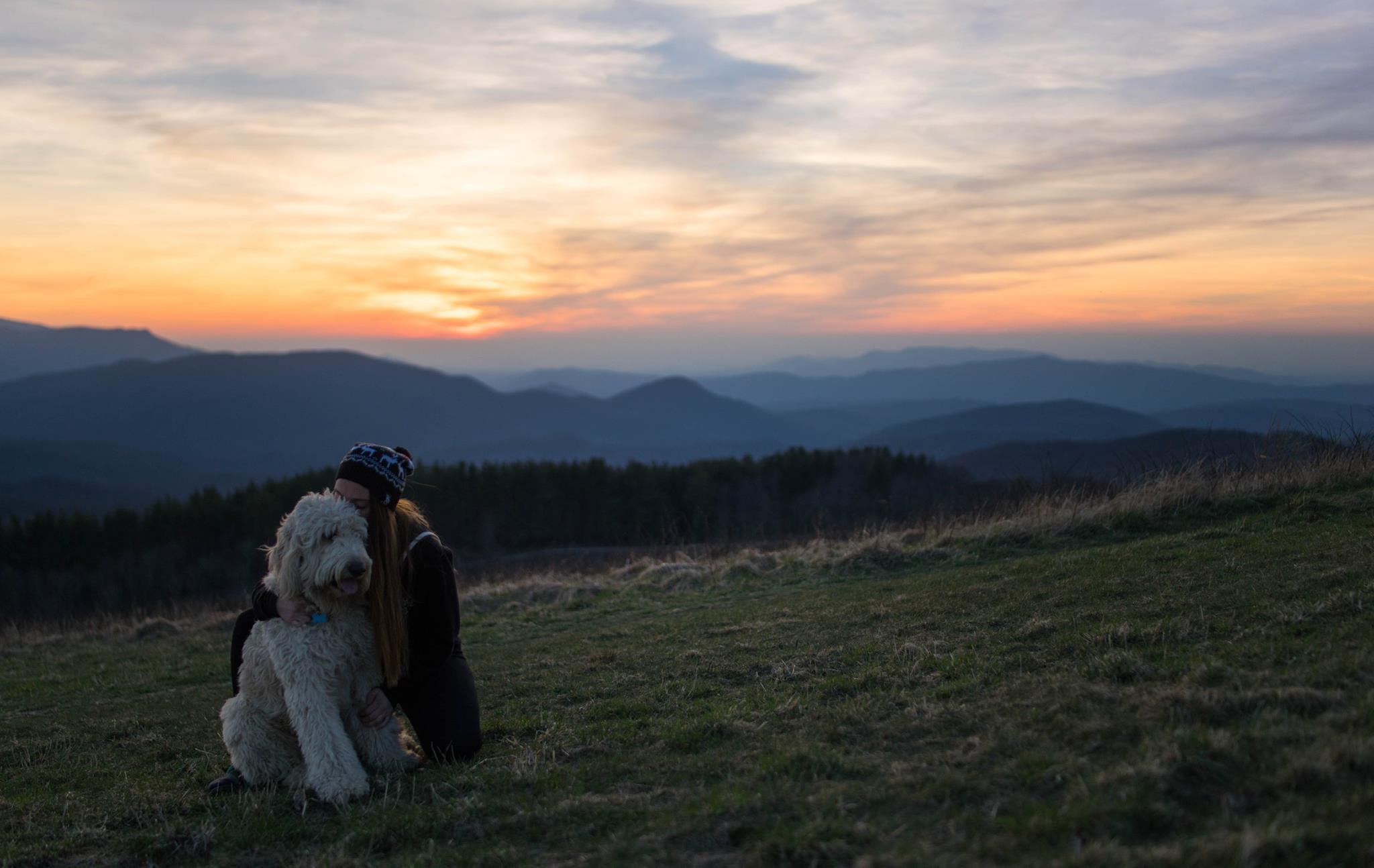Dogs need fresh air and exercise just as much as we do, but it’s not always easy to find outdoor recreational areas that are conducive to that. Many national and state parks prohibit pets because of the risks they pose to wildlife and other park patrons, but a lot parks do encourage four-legged friends to visit. We’ve put together a list of some of the best pup-friendly parks in the Blue Ridge. Great Falls Park
Great Falls Park
McLean, Virginia
It’s hard to believe this place is only 15 miles from the nation’s capital. With 800 mostly forested acres surrounding the Potomac River as it falls and flows through the Mather Gorge, the park is a welcome respite from the bustle of city life for both you and your dog. Dogs are welcome on all trails, falls overlooks and picnic areas, and they must be on a leash no longer than six feet at all times. Tempting as it may be to let Rover splash around in the river, I wouldn’t recommend it, and neither would the National Park Service—the Patomac’s currents are no joke in this area, not to mention the venomous snakes.
Shenandoah National Park
Virginia
Only a few national parks allow dogs on the trails, but luckily for everyone in Virginia, Shenandoah is on that list. Campgrounds throughout the park welcome four-legged guests with their humans, and some of the cabins and lodges are even pet-friendly. Dogs must be on a leash no longer than six feet at all times, especially on the trails. Be sure to check the list of dog-friendly trails ahead of time, though, because several trails in the park—Old Rag Ridge, Ragged Run, Frazier Discovery, to name a few—do not allow dogs. But only about 20 of the 500 miles of trail ask that you leave your furry friends at home, though, so you still have plenty to choose from.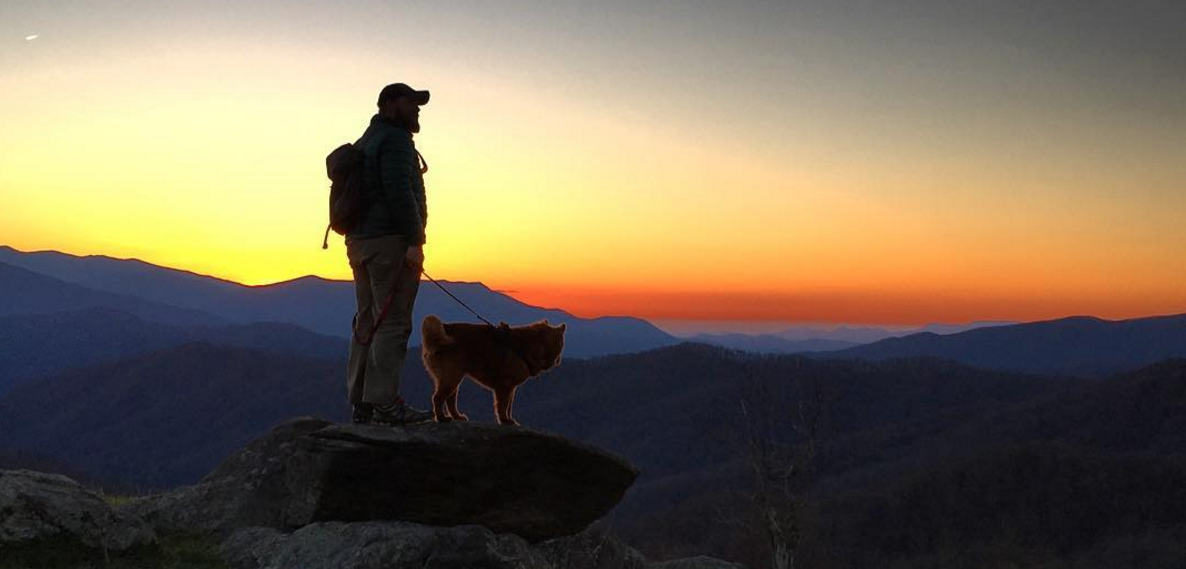 Harpers Ferry National Historical Park
Harpers Ferry National Historical Park
Harpers Ferry, West Virginia
With its adorable downtown area, access to both the Shenandoah and Potomac rivers, historical sites and miles of hiking and biking trails, it’s easy to see why Harpers Ferry is such a popular area for both humans and pups. But because it’s such a desired destination and oftentimes crowded, especially during the spring and summer, park officials urge pet owners to be carefully consider whether to bring their dogs inside the park. Dogs should be comfortable around crowds of people and other animals, plus well-behaved—young puppies or dogs with digging and clawing tendencies are discouraged from visiting the park.
Great Smoky Mountains National Park
Tennessee
Dogs on six-foot leashes are welcome in campgrounds and picnic areas in the Great Smoky Mountains National Park, plus the Gatlinburg Trail and Oconaluftee River Trail, two short walking paths. If you’re planning on exploring the longer trails in the park, though, you’ll need to leave Buster at home. Because dogs—as loveable as they are—have the potential to chase and threaten wildlife, pass diseases to wildlife populations, disturb the peace of the wilderness and even put themselves in danger as prey for animals like bears and coyotes, most national park trail systems ask that you keep your pup at home.
Chattahoochee-Oconee National Forest
Suches, Georgia
The Chattahoochee-Oconee National Forest (which is celebrating its 80th birthday this year) has more than 800 miles of recreational trails plus swimming areas, campgrounds and picnic areas. Forest regulations don’t allow dogs in the recreational swimming areas (disappointing, we know), but as long as anything with four legs is on a leash at all times, pets are welcome everywhere else in the forests.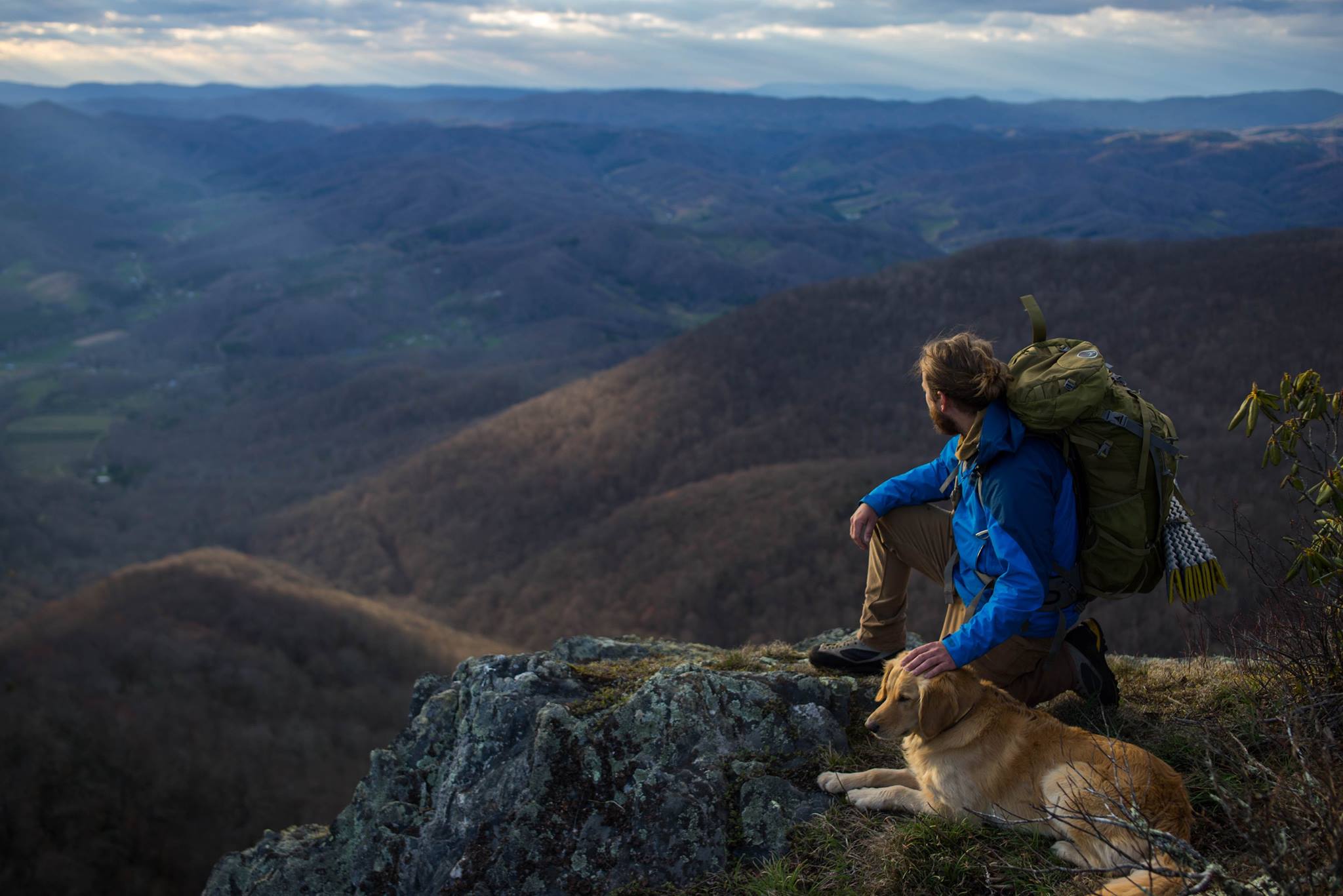 Big South Fork National River and Recreation Area
Big South Fork National River and Recreation Area
Kentucky/Tennessee
Good news for pet owners: the trails in Big South Fork National River and Recreation Are are both horse-friendly and dog-friendly. And if you happen to have both, keep in mind that the pup still needs to be on a leash even when you’re riding Flicka. Dogs are welcome on the river, but make sure they (and you) have a personal flotation device, and bring fresh drinking water to keep them from lapping up the potentially harmful river water. Dogs with licensed hunters are allowed to be off leash, but only during hunting season and not in designated safety zones.
Catoctin Mountain Park
Thurmont, Maryland
Close enough to Washington, D.C. and Baltimore, Maryland for a day trip but far enough to truly disconnect from the city, Catoctin Mountain Park is part of a larger complex of forested public lands including Cunningham Falls State Park, Gambrill State Park and Frederick and Thurmont Watersheds. Pets are allowed on the trails and in the streams of the 5,800-acre park, as long as they’re on a leash.
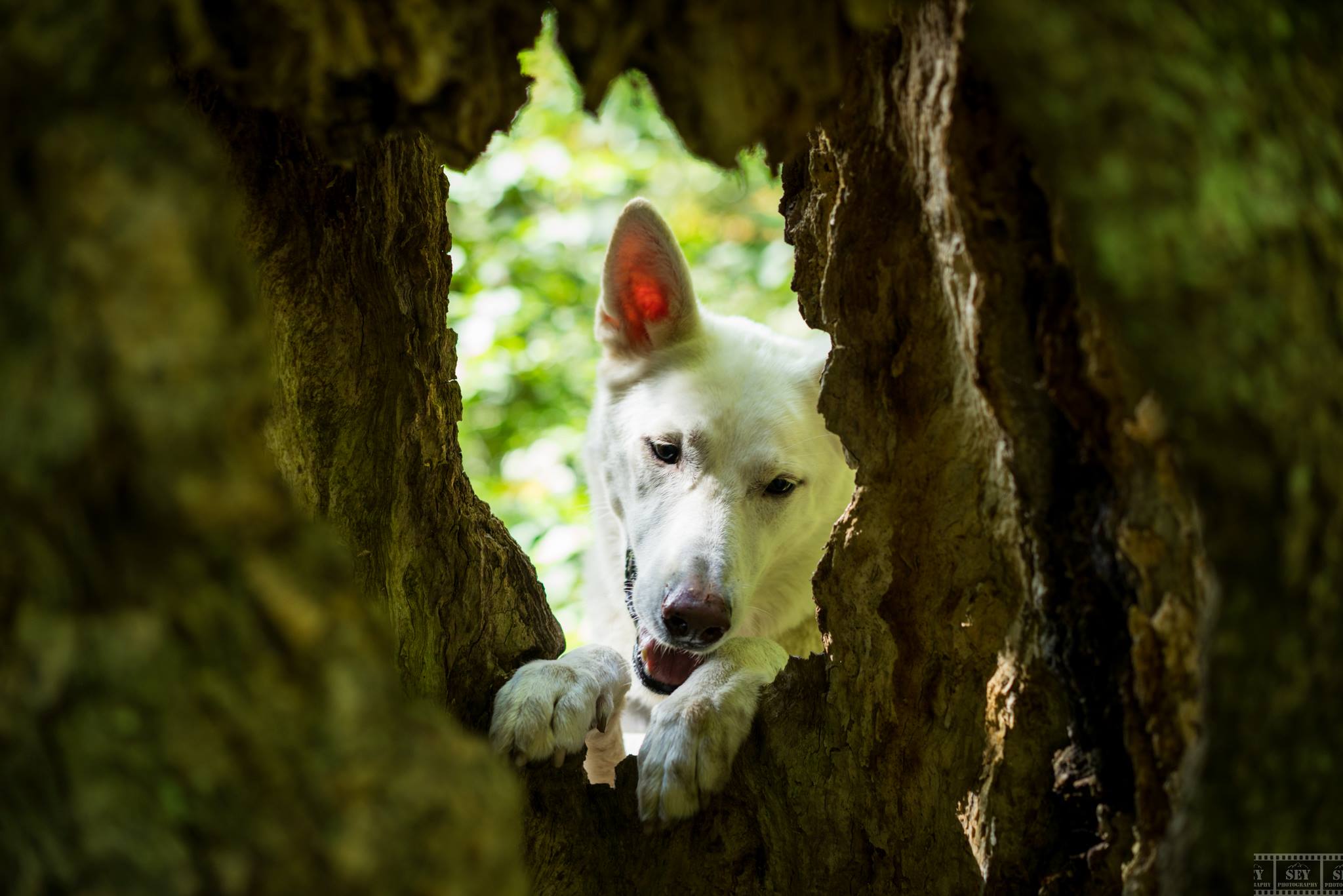
Deep Creek Lake State Park
Swanton, Maryland
Is there ever a happier sight than a dog swimming? Some parks with swimming areas don’t allow four-legged friends to partake, but if your pooch just can’t get enough of the water, check out Deep Creek Lake State Park. Fido is allowed to swim in all areas except the swimming beach, docks and fishing piers. The trails, boat ramp area and parking lots are also all dog-friendly.
French Broad River Park
Asheville, North Carolina
With two separate fenced-in spaces for large and small dogs, this is one of the most popular destinations for pups in the area. It’s also a pretty great spot for humans, and for long-distance runners whose dogs have the energy to keep up mile after mile, it doesn’t get much better than this. The French Broad River Greenway links three different parks, winding alongside the river. The trail gets a lot of traffic, though, so make sure your dog is comfortable around crowds. 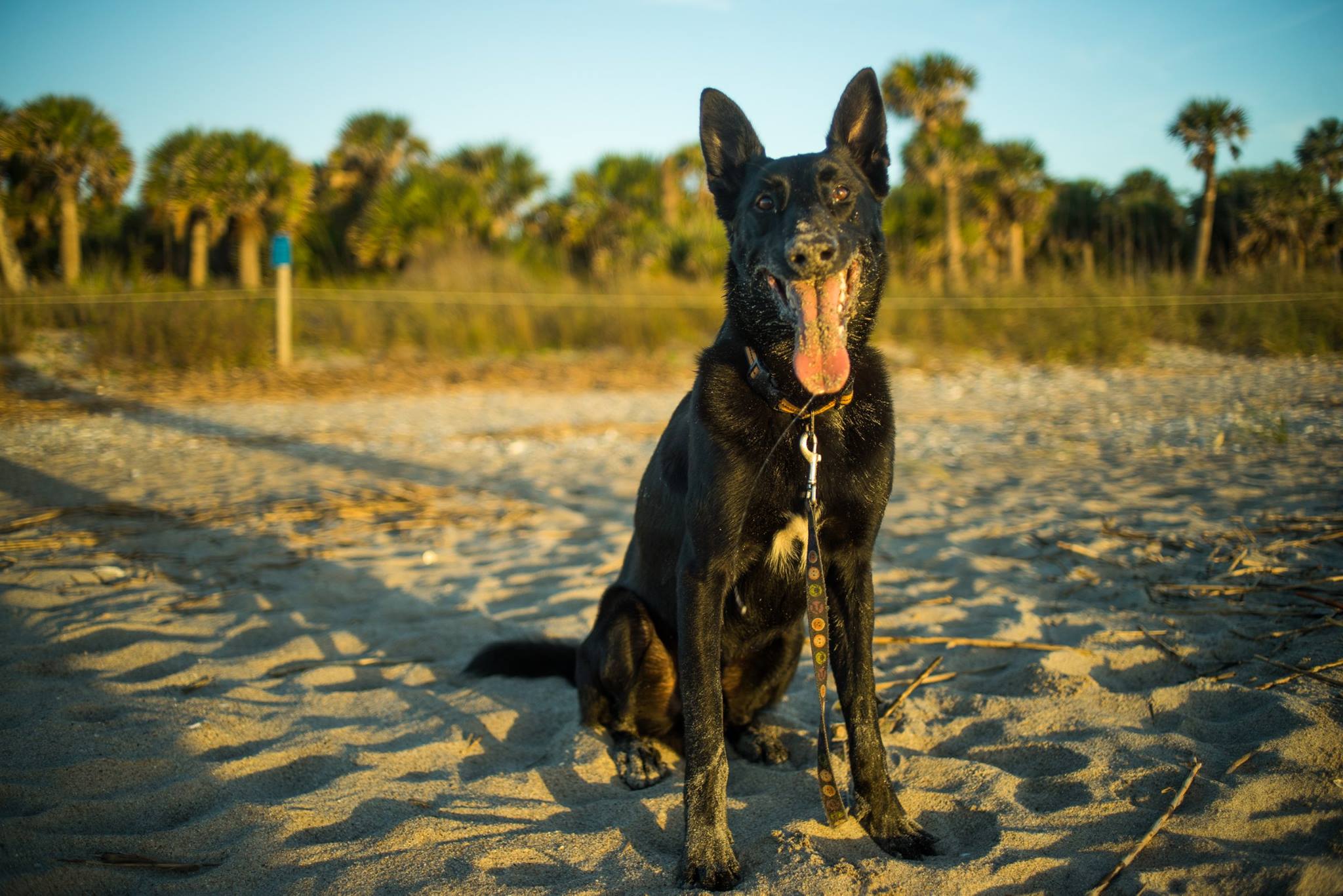 Lake Warren State Park
Lake Warren State Park
Hampton, South Carolina
About two hours west of Charleston, Lake Warren State Park is a quiet, serene spot with a 200-acre lake and a two-acre fishing pond, plus two nature trails and picnic areas. Pups are allowed everywhere outside, but only if they’re well-behaved and not prone to excessive barking—be respectful of the quiet, relaxing atmosphere that people come to expect at a fishing hole.
—By Laura Ingles
